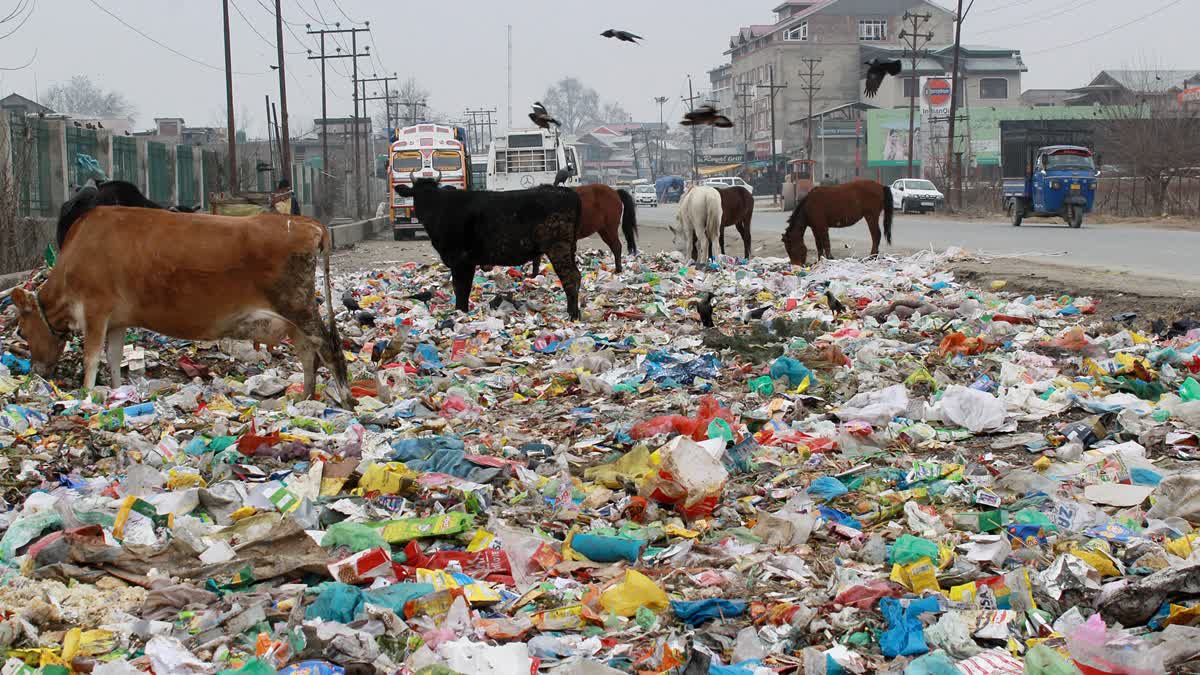Srinagar: Despite much brouhaha about the Swachh Bharat Mission aiming for cleaner Jammu and Kashmir, the government of India has not released the funds which it had allocated to the union territory.
Jammu and Kashmir was allocated Rs 1481.43 crore from 2019 to 2024. This amount was allocated for rural and urban sanitation under Swachh Bharat Mission-Urban (SBM-U) and Swachh Bharat Mission-Grameen (SBM-G). Out of this Rs 642.59 crore was released to Jammu and Kashmir.
In a reply in Rajya Sabha, the Ministry of Housing and Urban Affairs, in the budget session, Rs 251.73 crore were allocated in 2019-2020, only Rs 120.45 crore were released. In 2020-21, Rs 310.12 crore were allocated, only Rs 132.78 crore was released. In 2021-2022, Rs 289.67 crore were allocated but only Rs 125.34 crore were released. In 2022-2023, the central government allocated Rs 342.91 crore but only Rs 141.25 crore was released. In 2023-2024, the allocation was Rs 287 crore, only Rs 122.77 crore was released.
Officials said the amount released curtails implementation of SBM and the sanitation goals are not achieved. Director General Rural Sanitation, J&K, Anoo Malhotra said that whatever amount of funds the department receives after allocation, they are utilised in implementation of the sanitation mission.
However, other officials differed arguing that the Jammu and Kashmir government in August 2023 declared the UT as Open Defecation Free (ODF) plus model which now is creating hindrance in seeking budgetary support from the GoI.
"The national deadline for declaring states and UTs as ODF was August 2024, but JK declared itself ODF plus free a year before the deadline, when the fact is that sanitation goals were not achieved on ground. This is now becoming a huge problem in seeking grants and funds from GoI," officials told ETV Bharat.
According to the SBM guidelines, a state or UT once declared ODF free plus can not avail or seek grants from the government of India.
Launched on Gandhi Jayanti in October 2014 with much fanfare to ensure a clean India, the SBM was aimed to end open defecation, manage solid and liquid waste scientifically under the sustainable development goals of the United Nations (UN) to end pollution.
In rural areas, the scheme is being implemented by the Rural Development Department (RDD) and the Rural Sanitation Department (RSD). In the phase I launched between 2014 and 2019, the target of the mission was to construct toilets to end open defecation, and the RDD constructed 15 lakh plus toilets by the end of October 2, 2018.
The aim of the second phase, between 2019 and 2025, was to ensure visual cleanliness by achieving disposal of greywater and solid waste management across the UT, which the JK government claimed to have achieved a year before the deadline of August 15, 2024.
Activists allege the JK government implemented the SBM without having the awareness and knowledge about the goals and targets. "The government utilised funds on creating of assets like sheds, buying vehicles, but did not know how to use these assets, which are now largely unutilised, abandoned as ghost houses," Inayat Ahmad, a social activist told ETV Bharat.
"There is complete lack of accountability of the officers and officials linked with SBM implementation; the funds released have gone waste, with no real results," Ahmad said.
The RDD claims to have built 113 plastic waste management units in Jammu and Kashmir, out of which 35 are functional, but "none of them is working".
The RDD data shows that it has procured 1,453 vehicles, including tricycles (637), e-rickshaws (458), and motorised vehicles (358), for transportation of solid waste and has constructed 2,800 segregation sheds in the UT. As per contractors, each segregation shed was built for Rs 7 lakh, while each vehicle was procured at Rs 11 lakh.
Officials said the RDD employees like Panchayat Secretary, Gram Rozgar Sewak (GRS) and engineers do not have proper knowledge of the SBM. "Officers like BDOs themselves attend the capacity building programs when Panchayat secretaries and engineers must attend the workshops and training sessions held by the Positive Move Consulting Ltd, a company hired by the JK government," sources said.
However, DG Anoo Malhotra told ETV Bharat the employees of RDD are sent for capacity building to training programs and workshops here or outside.
Read more:



